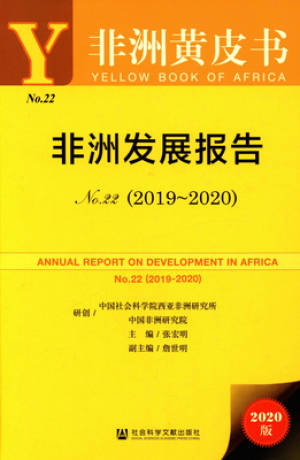ANNUAL REPORT ON DEVELOPMENT IN AFRICA No. 22 (2019-2020)

Abstract
According to the definition of comparative politics, political development is the change in the political field in the transformation from traditional society towards modem society. Despite a variety of understandings regarding the essence of political development, it is generally believed that a political development means an increasing breath and depth of poEtical participation of all social members. Political democratization in this sense is both the connotation and the goal of African countries, poltical development.
This year marks the 60th anniversary of "African Independence Year". As the continuing process of African political exploration, which was initiated by African political independence, the African democratization has gone through three decades since its debut in the 1980s. Following conclusions could possibly be made if a comprehensive perspective which covers historic, realistic, internal, external, macro and micro factors were adopted: the African democratization, characterized by the political pluralism, especially the multiparty system, is both the logic extension of the old international order's transformation towards a new one in Africa caused by the end of the Cold War, and also an ongoing process of independent political exploration of African countries; it is both an integral part of international trend of political development and the movement of global democratization, and also an inseparable component of the systematic social change of African countries at the turn of the century.
Not only has this profound political change in African post-independence history reformed African countries, political systems, party systems, and political ecology, but also influenced their economic development, social transformation and cultural changes. It has not only afiected the reorganization of African geopolitical and geo-economic relations, but also has changed relations between Africa and outside world, even including Africa's relations with world major powers. The academia however holds diversified opinions regarding the African democratization. It is therefore necessary to re-examine and evaluate the evolution, challenges and outlook of ongoing African democratization from perspectives of disciplinary and academic history. Accordingly, "Challenges and Outook of African Political Development" is determined by the Editorial Committee as the theme of this year's Annual Report on Development in Africa.
The Report is composed of six units:Main Report, Sub-Report, Special Reports, Hot Spots, Foreign Economic Relation and Documentation. The Main Report elaborates on the general characteristics, development path, performance and efiects of current African economy, and makes perspective judgement on the COVID-19's shock on African economy and its influence on China-Africa economic and trade relationship. The Sub-Report provides an in-depth analysis regarding the new situation of African regional politics, security, economic development and Africa's relations with world major powers, and also makes predictions on their future trend. The Special Reports are composed of two parts: Comprehensive Reports and Countries Reports. The Comprehensive Reports are dedicated to analysis and prediction over evolution, current development and trend of African democratization as well as new challenges, characteristics of African political parties' evolution and world's assessment on African democratization. Countries Reports focus on analysis and prediction over situation and trend of democratization and political development of Sudan, Ethiopia, Senegal, Kenya and Zambia. The Hot Spots pay special attention to the Horn of Africa, the Sahel Zone and the Great Lakes Region instead of different individual African countries. Foreign Economic Relation updates the studies regarding Africa's foreign trade, investment and aid from the outside world in 2019. The Documentation includes China's African Studies in 2019, a chronology of Africa, and a chart on macroeconomic indicators for African countries.
Keywords: Africa; Political Democratization; Economic Development; China-Africa Relations